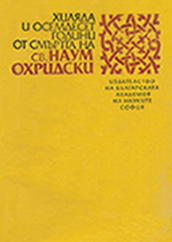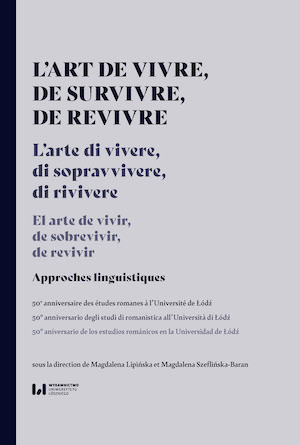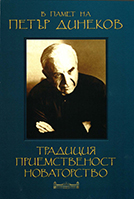
We kindly inform you that, as long as the subject affiliation of our 300.000+ articles is in progress, you might get unsufficient or no results on your third level or second level search. In this case, please broaden your search criteria.











In this paper, we analyze the intensive comparisons applied to medieval French adjectives with the meaning ‘yellow’ or with closely related meanings. On the basis of the concept of collocation defined by the Explanatory and Combinatorial Lexicology (Meaning-Text Theory), we study the second terms of these comparisons in successive sections. A first section presents the concept of collocation. The second section is dedicated to the second term of comparison ‘gold’. The third section deals with the term ‘wax’ and the fourth section deals with the term ‘egg yolk’. A fifth section regroups other less frequent second terms of the comparison, such as ‘kite spawn’, ‘oriole feather’ or ‘Spanish broom’. This paper is integrated in the COLINDANTE research project (I+D+i PID2019-104741GB-100, Ministry of Science and Innovation, Spain) and is part of a series of works that describe intensive comparisons based on the names of colors in medieval French.
More...
During the pandemic caused by Covid 19, the State of Alarm in Spain shifted the focus of the advertising to the prevention of the health of oneself and others. However, according to the ONCE foundation, disabled people were not taken into account. This is denounced in an video which uses indirect procedures such as metaphorisation, irony and humour. The underlying criticism confronts topoi that in this historical-social moment seem to have changed, at least in terms of the weight given to them by society. This requires the ONCE Foundation to choose its tone so as not to provoke unwanted reactions. A playful framework (gamers) is created to mask or attenuate social and ideological criticism. Emotion is still a fallacy but here it is reinvented to be used as a legitimising argument. The work consists of an argumentative analysis (Anscombre-Ducrot 1983) of multimodal discourse following a methodology of Pragmatic Linguistics (Fuentes Rodríguez 2017 [2000]).
More...
Our research focuses on enriching the lexical repertoire of French philology students during the COVID-19 lockdown (March 2020 – May 2021). We answer two questions: 1) what are the dictionary resources of French philology students? 2) What are other sources of their lexical enrichment? In the conclusions, we predict the waning of spontaneous use of paper dictionaries and the growth of informal vocabulary-learning in students’ learning trajectories.
More...
Novitas is emphasized in biblical priamels from the Book of Proverbs both from the point of view of subject matter and their linguistic form. The validity of their subject matter stems from the fact that they belong to wisdom literature, which, according to the intentions of their authors, was supposed to the canon of conduct for the whole society. The researched proverbs depict the art of life being of potential interest to the recipient from the 21st century. Despite being marked by the realities from a different epoch, these sentences are still attractive content-wise. Next to individual references to the force majeure we find in priamels still valid comments on the human nature as well as timeless philosophy of life based on moderation, especially useful in the epoch of predominating consumerism. Explicit moral norms precisely define first and foremost types of behaviour and attitudes which we should avoid as well as those which are welcome.
More...




